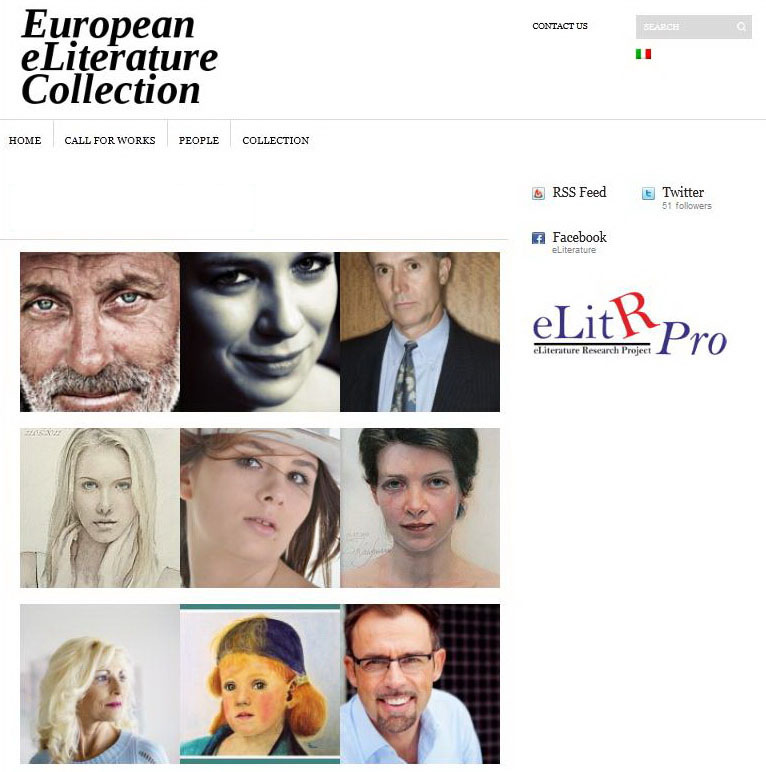Search
The search found 287 results in 0.016 seconds.
Search results
-
Early Authors of E-Literature, Platforms of the Past
A detailed discussion of the exhibit “Early Authors of Electronic Literature: The Eastgate School, Voyager Artists, and Independent Productions” (now installed at the University of Washington). Grigar looks specifically at the major technological shifts in affordances and constraints provided by early computer interfaces and the ways in which e-literature writers from the mid-1980s to the mid-1990s worked with and against these interfaces. For example, she discusses the command-line interface of the Apple IIe – which was released in 1983 – as an example of an interface that exemplifies an ideology wholly different from the now dominant Graphic User Interface. Thus, the command-line interface also makes possible entirely different texts and entirely different modes of thinking/creating such as that exemplified by bp Nichols' “First Screening” from 1984.
Eric Dean Rasmussen - 05.10.2011 - 09:19
-
Seven Types of Interface in the Electronic Literature Collection Volume Two
Seven Types of Interface in the Electronic Literature Collection Volume Two
Eric Dean Rasmussen - 05.10.2011 - 10:16
-
The Present [Future] of Electronic Literature
The Present [Future] of Electronic Literature
Dene Grigar - 06.10.2011 - 07:00
-
Exploiting Kairos in Electronic Literature: A Rhetorical Analysis
The purpose of this study is to expand on Wayne Booth's work in the Rhetoic of Fiction regarding methods directing readers toward understanding in fiction to include the possibilities for pursuation avaiable in electronic mediums. The story theorizes the the answers to the following: How are writers in electronic spaces appropirating, expanding, and subverting electronic devices honed in print? How has the kairos, or situational context, of electronic spaces been exploited? What new rhetorical devices are being developed in electronic spaces? What does the dialogue between print-based and electronic-based works offers to rhetorical scholars in terms of rhetorical analysis and composition?
Kristina Gulvik Nilsen - 18.10.2011 - 21:28
-
eLiterature questa (s)conosciuta. Storia e stato dell’arte, definizione e sistemi affini, generazioni e classificazione dei generi
Questo contributo profila il fenomeno della letteratura elettronica chiarendo alcuni equivoci e indicando le caratteristiche salienti che rendono una forma letteraria digitale ascrivibile a tale fenomeno. Esso offre inoltre una breve storia e l’attuale stato dell’arte della letteratura elettronica, analizza le condizioni necessarie per ascrivere un’espressione digitale all’ambito della eLiterature e descrive le interazioni che avvengono tra eLiterature, Net Art, Game Theory e Computer Science. Esso offre infine una panoramica sulle generazioni e i generi di letteratura elettronica, mostrandone le caratteristiche salienti.
Fabio De Vivo - 20.10.2011 - 16:12
-
European eLiterature Collection
The European eLiterature Collection is a project developed as part of The eLiterature Research Project. The aim of the collection is to provide an essential tool to assist in formalizing e-Literature in Europe.
In this respect, the European eLiterature Collection Board of Editors, evaluates, reviews, and publishes on the web works of Electronic Literature by European authors.

Fabio De Vivo - 22.10.2011 - 12:16
-
Collecting digital literature in Europe
Collecting digital literature in Europe
J. R. Carpenter - 25.11.2011 - 14:10
-
Collaborations in E-lit
This essay, a discussion between two esteemed e-poets for whom collaboration is an integral part of their creative practice, appeared in the "The Collaborative Turn" special issue of American Book Review, guest-edited by Davis Schneiderman. In their discussion, Montfort and Strickland survey several common types of e-lit collaboration and provide links to representative examples. Strickland explicitly links the material aesthetics of code poetics to literary theorist Timothy Morton's call for critical thinking that engages the universe's enmeshed interconnectedness, which he dubs "the ecological thought."
Eric Dean Rasmussen - 29.12.2011 - 11:45
-
Better Looking, Close Reading: How Online Fiction Builds Literary-Critical Skills
[insert abstract here] On reading fiction as an ethical task...
Presented on Saturday, 7 January at the 2012 MLA Convention, panel 442, "New Media, New Pedagogies," arragned by the Division of Prose Fiction. Other panelists included Heather Houser, Jay Clayton, and the moderator, Rebecca L. Walkowitz.
Eric Dean Rasmussen - 07.01.2012 - 20:04
-
Invisible Rendezvous: Connection and Collaboration in the New Landscape of Electronic Writing
Invisible Rendezvous: Connection and Collaboration in the New Landscape of Electronic Writing
Eric Dean Rasmussen - 15.01.2012 - 12:25

